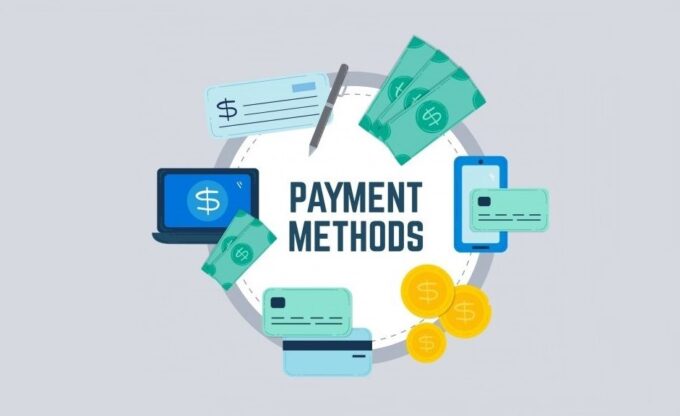In the modern economy, digital sales are no longer just an option — they’re a business necessity. And that reality means that choosing the right eCommerce platform is a make-or-break decision. Unfortunately, it’s not always an easy decision to make.
According to peer-to-peer review site G2, businesses have at least 259 eCommerce options to choose from. But they’re not all created equal. There are platforms aimed at specific industries. There are some built with scalability in mind. And still others prioritize ease of use.
But lately, there’s yet another wrinkle that makes the eCommerce landscape harder to parse: the increasing adoption of eCommerce by companies focused on business-to-business (B2B) sales. As explained in this resource, B2B companies require a vastly different toolset than business-to-consumer (B2C) sales.
That means the eCommerce platforms geared toward B2B use are quite different from their B2C counterparts. It also means choosing one requires a different selection process for the businesses making the choice. Custom design services, after all, will only take you so far. To explain why there are four reasons why B2B eCommerce platform selection is different from B2C.
B2B Firms Require Different Payment Options

For companies that sell products directly to consumers, credit card or direct debit payments are the norms. For that reason, B2C eCommerce platforms tend to come with the ability to accept those right out of the box.
But B2B firms need far more flexibility in how they accept payments from their customers. At a minimum, they need the ability to send invoices with customizable payment terms, credit account management, and built-in order approval functionality.
And on top of that, many B2B sellers arrange their terms on a per-customer basis, and their eCommerce solution must support that level of personalization. So, where a B2C selection process can evaluate payment options at a glance, B2B firms have to do far more research to see if a particular platform suits their needs.
B2B Firms Deal With Many-To-Many Relationships

When the average B2C business makes a sale, they only have to deal with the individual making the purchase. But B2B sales relationships are far more complex. For a single customer account, there can be several decision-makers involved in every sale. The situation is even more complex in the case of B2B2C eCommerce.
For example, there could be one contact that handles researching products and solutions who needs detailed data to make purchase recommendations. Then, another contact might be in charge of the actual procurement process. And then, there may be yet another who will manage the receiving and redistribution of those orders.
It’s those kinds of many-to-many sales relationships that mean B2B eCommerce solutions must have more complex role management capabilities that B2C platforms don’t need. And the specifics of those features matter — making evaluation of them a major priority in the B2B selection process.
B2B Firms Often Need Granular Catalog Control

In most cases, B2C businesses are more than happy to make everything they sell available to any customer willing to pay. But for B2B firms, that’s not always the case. Sometimes, they must adhere to geographic sales restrictions, control the sale of products that require licensure to obtain, or otherwise customize the catalog of products a given customer will see.
They might also have to provide multiple catalog versions for a single client. This is occasionally necessary when working with larger firms. Bigger companies sometimes have multiple divisions with differing needs and product demands. For B2B firms, catering to those needs isn’t optional — it’s essential.
On top of that, B2B firms may even need to furnish particularly important customers with personalized SKU numbers for the products they order most. Those are all functions that the average B2C eCommerce platform can’t support.
And depending on a B2B firm’s needs, the absence of any one of those functions could be a deal-breaker. For that reason, B2B eCommerce selection requires careful consideration of multiple catalog control features that the average B2C company wouldn’t have cause to even think about.
B2B Firms Must Consider Their Integration Needs

Aside from large brick-and-mortar retailers, not many B2C businesses will have any type of preexisting technology to consider when selecting an eCommerce platform. That means they don’t need to worry about how the platform they choose will integrate with any other software or solutions they already own.
But that’s not true of many B2B businesses. They often have enterprise ERP systems, product information management (PIM), and digital asset management (DAM) systems that they’ll need to connect to their eCommerce platform. And in some cases, they’ll even need their eCommerce platforms to integrate with the procurement systems used by major customers.
Choosing an eCommerce platform that can’t readily integrate with existing systems would leave a B2B firm with only two options. The first would be to scrap and replace their existing technology. And in many cases, doing so would be cost-prohibitive.
The other would be to invest even more money to build a custom integration solution. But there are no guarantees that such a solution would even be possible depending on the platforms involved. And even if it is, there’s no telling when a custom integration will break due to updates to the eCommerce platform or to the systems it’s connecting to. Needless to say, both options leave a lot to be desired for B2B firms.
In other words, most B2C eCommerce platforms won’t need to be anything but standalone solutions. But B2B platforms, by contrast, might need to coexist with any number of other technologies. For that reason, B2B businesses have to factor those integrations into their selection process. You can check it at www.greenwingtechnology.com.
The Bottom Line
By now, it should be quite clear that choosing a B2B eCommerce solution entails some specific considerations that B2C businesses don’t have to think about. And the four differences identified here are by no means an exhaustive list.
Depending on the specific needs of a given B2B firm, there might be dozens more things for them to consider when they choose an eCommerce platform. The bottom line is that B2C and B2B eCommerce solutions are often similar in name only — but are completely different animals under the hood.
And that’s something that businesses have to take into account during their selection process. If they don’t, they risk choosing a solution that will fall far short of both their needs and their expectations — or worse — they could end up choosing an eCommerce platform that will cost far more than it’s worth in the long run.









